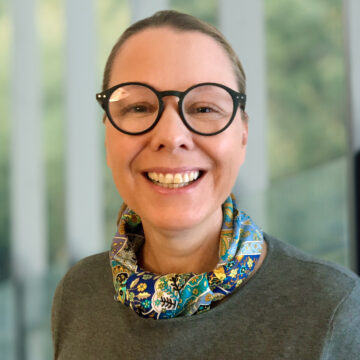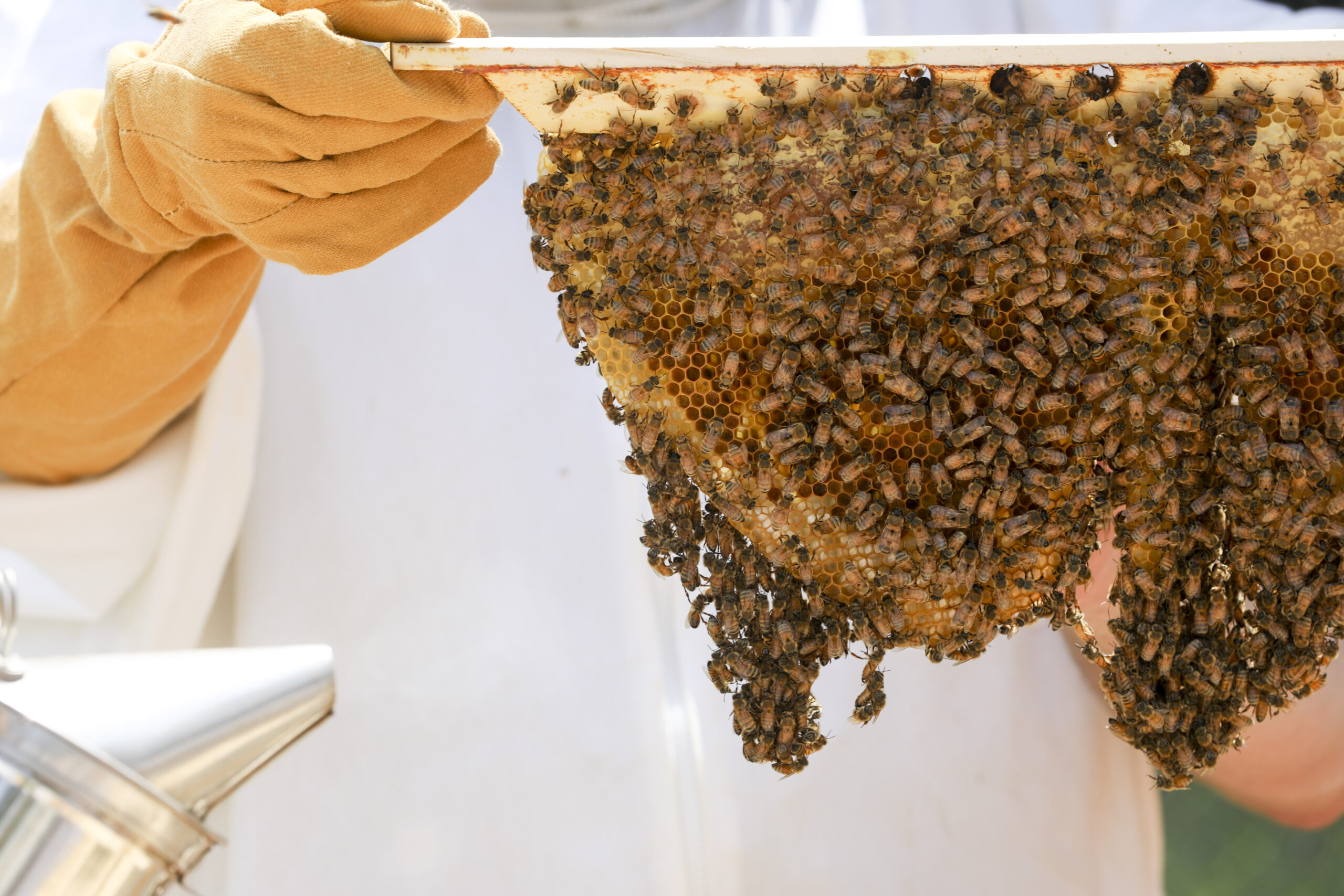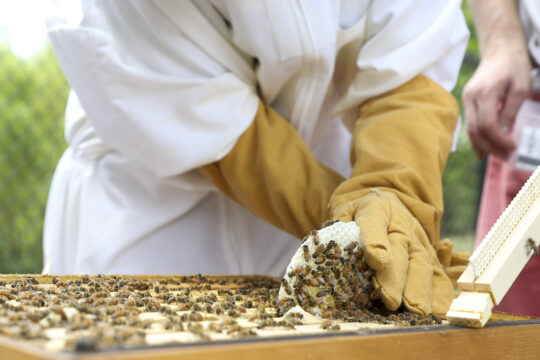On the forefront of honeybee health
At the same time Mayer was introducing the teaching hives into the VTH curriculum, Dr. Annette Kleiser was working to bring a promising vaccine against American foulbrood disease out of the research lab at the University of Helsinki in Finland and into the marketplace.
Kleiser previously worked with universities to translate promising research ideas into real-world products.

Dr. Annette Kleiser, CEO of Dalan Animal Health
“Typically you see the same innovation over and over, you know, little advancements that are important, nothing that is completely different and novel,” she says. Until the University of Helsinki came calling with this idea for a bee vaccine.
“I was just blown away,” she recalls. “I said, ‘Somebody has to do this.’ We all know it’s a big problem. Bees are dying and while there are many (reasons) why they’re dying disease is a major factor. They are livestock and we depend on them and we’re not going to address pesticides or monocultures any time soon – those are policy decisions – but we know vaccines work and this research has shown it seems to work in bees. This is something we can do now. We don’t have to wait 20 years.”
Along with verifying the efficacy and finding a manufacturer, Kleiser and her group at Dalan had to convince the U.S. Department of Agriculture’s Center for Veterinary Biologics to treat the new vaccine the same as vaccines for other livestock.
“We had to make the case that this is a livestock vaccine and should be regulated just like a vaccine for a pig or a dog or a cat or a cow,” Kleiser said. The USDA agreed, and Kleiser went searching for a university partner to test and further develop the vaccine.
“I was contacted by her because she has heard we are one of the very few vet schools that has a bee medicine rotation program. She was intrigued, so she came to visit us in Athens,” Mayer says.
Kleiser was living in Los Angeles at the time. Her team at Dalan was virtual – experts scattered throughout the U.S. and the world – but when she saw that approval was at hand, she knew she needed to bring the team together in one location.
“I had a long wish list of where this should be – a major veterinary school, a major university, close to an international airport, climate where you could have bees and do research with bees not for just two months out of the year but nine or 10 months out of the year, and an animal health presence with companies in the space, talent available. Athens met every single criteria we were looking for.”
Kleiser reached out to Mayer, who showed her the teaching hives and introduced her Dr. Keith Delaplane, an entomologist who oversees the honeybee program in the College of Agricultural and Environmental Sciences.




